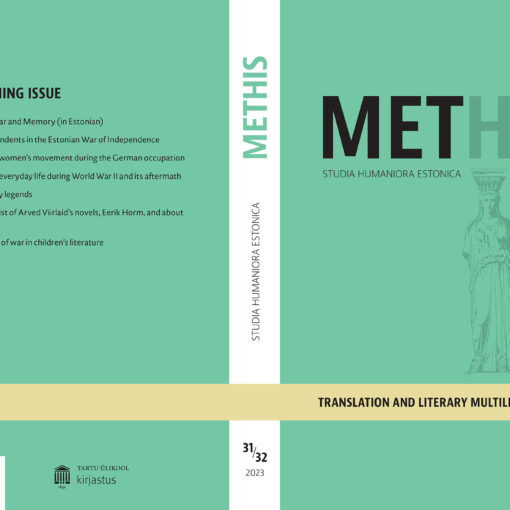The chapter “Russian Literature in Estonia between 1918 and 1940 with Special Reference to Dostoevsky” gives a survey of translations from Russian literature made in Estonia in 1918–40 against the backdrop of the latter nation’s cultural development. Translation is understood as a practice affected by social contingencies and cultural exchanges. As former citizens of Tsarist Russia, the older generation of Estonian intellectuals for who shaped the cultural repertoire of Estonia after independence in 1918 drew on their knowledge of Russian. The initial need for drama translations for amateur theatre groups was paralleled by interest in new developments of Russian fiction (reflecting the influence of Soviet Communism) and in translations of classic Russian authors, now part of the global literary canon.
To support our argument that cultural exchange is relatively autonomous from political factors, we analyse how Dostoevsky influenced Anton Hansen Tammsaare (1878-1940), a major Estonian prose author and a translator of Dostoevsky. Tammsaare openly acknowledged Dostoevsky’s influence on the poetics of his prose. Through transculturation, the polyphonic composition of Dostoevsky’s novels resonates with aspects of Tammsaare’s pentalogy Truth and Justice. The latter’s translation of Crime and Punishment is the only Estonian version of this novel; it has been reissued repeatedly and never retranslated. The freedom of the world republic of letters, which ignore political and linguistic boundaries of nations, is manifest in Tammsaare’s decision to translate Crime and Punishment and the fact that his century-old version is still current in Estonia.

